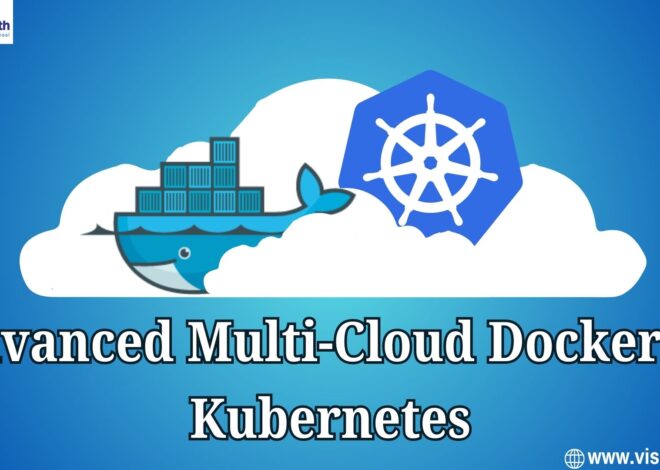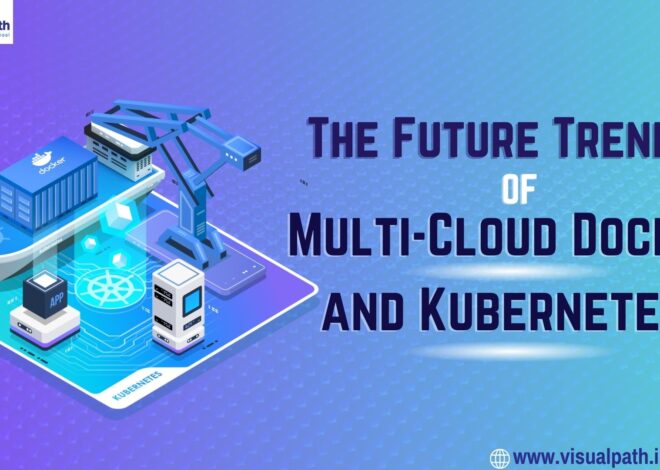
What Are the Benefits of Using Docker and Kubernetes in a Multi-Cloud Setup?
Docker and Kubernetes in a multi-cloud setup provide businesses with unparalleled flexibility and scalability. By leveraging these technologies, organizations can seamlessly deploy and manage applications across various cloud providers. This approach not only optimizes resource utilization but also enhances resilience and performance. For companies trying to optimize the effectiveness and dependability of their IT infrastructure, this is the perfect answer.
1. Enhanced Flexibility and Portability
Docker, a containerization platform, packages applications and their dependencies into portable containers, ensuring consistency across different environments. This feature becomes particularly advantageous in a multi-cloud setup, where organizations can deploy applications across various cloud providers without modification. Kubernetes, an orchestration tool, manages these containers, making it easier to move workloads between cloud environments. This flexibility prevents vendor lock-in, allowing businesses to choose the best services and pricing from different providers.
2. Scalability and Performance Optimization
One of the key strengths of Kubernetes is its ability to scale applications dynamically. In a multi-cloud environment, Kubernetes can distribute workloads across multiple cloud providers, optimizing resource utilization and ensuring high performance. This capability is crucial for handling varying workloads, as Kubernetes can automatically scale up resources during peak demand and scale down during off-peak times, optimizing cost and performance. Kubernetes Multi-Cloud Training
3. Cost Efficiency
Using multiple cloud providers allows organizations to take advantage of competitive pricing and specialized services. Kubernetes can schedule and run containers in the most cost-effective environment, whether it’s based on computing power, storage, or other resources. This dynamic allocation of resources helps organizations minimize costs while maintaining the required level of service. Additionally, Kubernetes’ ability to automate scaling and resource management reduces the need for manual intervention, further cutting down operational expenses.
4. Improved Resilience and High Availability
A multi-cloud strategy enhances the resilience of applications by providing redundancy. If one cloud provider experiences an outage or a region-specific issue, Kubernetes can seamlessly shift workloads to other healthy environments, ensuring uninterrupted service. This capability is vital for mission-critical applications where downtime can result in significant financial losses or damage to the company’s reputation. Docker and Kubernetes together ensure that applications are not tied to a single provider’s infrastructure, reducing the risk associated with provider-specific failures. Multi-Cloud Training
5. Streamlined DevOps and CI/CD Pipelines
Docker and Kubernetes streamline the development and deployment process, making it easier for DevOps teams to implement Continuous Integration and Continuous Deployment (CI/CD) pipelines. Applications execute reliably in a variety of environments—from development to production—thanks to Docker containers. Kubernetes automates the deployment and scaling of these containers, allowing teams to focus on developing features rather than managing infrastructure. This automation accelerates the release cycle, enabling faster delivery of updates and features to end-users.
6. Consistent Environment Across Cloud Providers
In a multi-cloud setup, maintaining consistent environments across different cloud providers can be challenging. Docker containers encapsulate an application and its dependencies, ensuring that it runs the same way regardless of where it is deployed. Kubernetes further enhances this consistency by providing a unified orchestration layer that manages containers across different cloud platforms. This uniformity simplifies the management of applications and reduces the potential for errors caused by environment discrepancies. Master Docker & Kubernetes Training
7. Enhanced Security and Compliance
Security is a critical concern in any cloud deployment. Docker and Kubernetes provide several features that enhance security in a multi-cloud environment. Docker’s containerization isolates applications, reducing the potential attack surface. Kubernetes offers features like Role-Based Access Control (RBAC), network policies, and secrets management, which help enforce security policies across different environments. Additionally, using multiple cloud providers can improve compliance by leveraging region-specific services that meet local data protection regulations.
8. Facilitated Innovation and Experimentation
A multi-cloud approach, combined with Docker and Kubernetes, fosters innovation by providing access to a wide range of services and tools across different providers. Organizations can experiment with new technologies and services without being locked into a single provider’s ecosystem. This freedom to innovate can lead to the development of more efficient, scalable, and secure applications. Kubernetes’ orchestration capabilities further simplify the testing and deployment of new features, enabling a more agile and responsive development process. Multi-Cloud Online Training Course
9. Future-Proofing IT Infrastructure
As cloud technology evolves, new services and innovations are continually introduced. A multi-cloud strategy, supported by Docker and Kubernetes, ensures that organizations can take advantage of these advancements without significant infrastructure changes. This flexibility to adapt and integrate new technologies is essential for future-proofing IT infrastructure. By staying agile and open to new possibilities, businesses can maintain a competitive edge and meet changing market demands.
Conclusion
Using Docker and Kubernetes in a multi-cloud setup offers a multitude of benefits, from enhanced flexibility and scalability to improved cost efficiency and security. By leveraging these technologies, organizations can optimize their operations, ensure high availability, and foster innovation. As the cloud landscape continues to evolve, the synergy between Docker, Kubernetes, and multi-cloud environments will become increasingly vital for businesses looking to stay competitive and agile. Embracing these technologies today will pave the way for a more resilient and efficient IT infrastructure in the future. Docker & Kubernetes Multi-Cloud Training
The Best Software Online Training Institute in Ameerpet, Hyderabad. Avail complete Docker & Kubernetes using Multi-Cloud Training by simply enrolling in our institute, Hyderabad. You will get the best course at an affordable cost.
Attend Free Demo
Call on – +91-9989971070
WhatsApp: https://www.whatsapp.com/catalog/917032290546/
Visit: https://www.visualpath.in/kubernetes-multi-cloud-online-training.html



